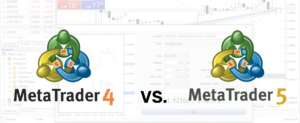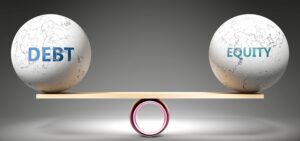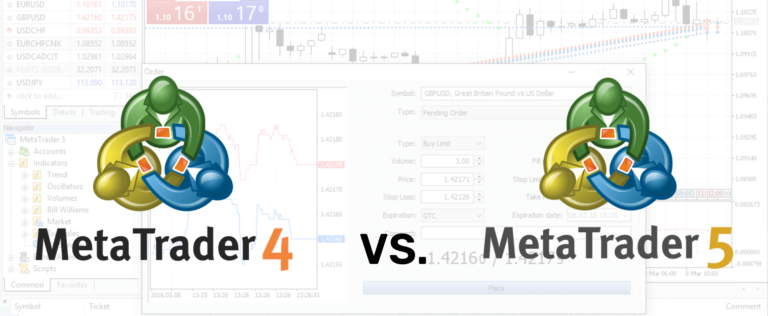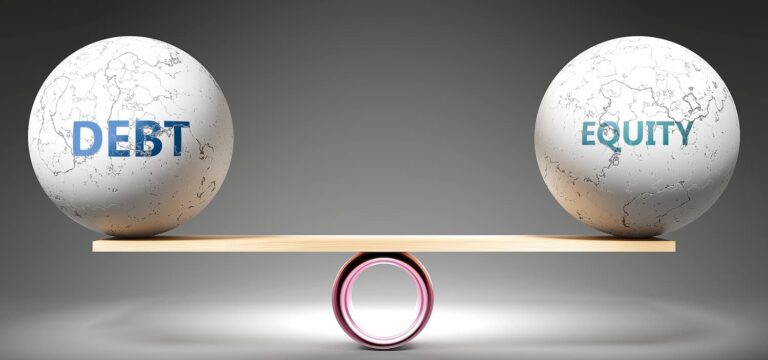Assuming that you are already familiar with the concept of Forex, you may want to expand your knowledge before engaging in trading. This is a great first step in your Forex journey, as conducting thorough research will ultimately help you in the future. The purpose of this article is to provide an introduction to Forex, familiarize you with the related terminology, outline various trading strategies and styles, and offer some key tips to consider before starting trading.

What is Forex?
Forex, also known as FX or foreign currency exchange, is a market where currencies are bought and sold. Due to its global nature, Forex markets are open 24 hours a day throughout the week (from Sunday to Friday), with trading occurring at any time across different time zones. Forex is a unique market in the world of finance, and it offers opportunities to trade on a global scale.
Trading Forex can be lucrative and enjoyable, but it requires a certain level of knowledge and skill. To be successful, traders must understand the fundamentals of the market, including economic indicators, market trends, and geopolitical events that can affect currency values. They must also develop a solid trading plan and risk management strategy to protect their capital.
Before you start trading Forex, it is important to do your research and gain a thorough understanding of the market. This includes learning about the different types of Forex trades, such as spot and forward trades, and the various trading platforms and tools available. It also involves understanding the different factors that can influence currency values, such as interest rates, inflation, and political events. We will talk more about this below.
While Forex trading can be a great way to trade, it is important to approach it with caution. With a thorough understanding of the market and a sound trading plan, you can minimize your risks and maximize your potential profits.
Forex Terminology
We will use some important terminology throughout this article, so make sure to familiarise yourself with the terms below:
- Currency Pair: Two currencies that are traded against each other in the Forex market, represented by a three-letter code, such as EUR/USD (the exception to the rule is trading cable, which is a term for the GBP/USD currency pair, originating from the time when the exchange rate was transmitted via a cable under the Atlantic Ocean).
- Long: A position taken by a trader who expects a currency to appreciate in value, meaning they have bought the currency and hope to sell it at a higher price in the future.
- Short: A position taken by a trader who expects a currency to depreciate in value, meaning they have sold the currency and hope to buy it back at a lower price in the future.
- Flat: A position where a trader has no exposure to a particular currency pair.
- Square: A term used to describe a trader who has no open positions in the market.
- Forwards: A type of Forex trade where two parties agree to exchange currencies at a specific future date and at a predetermined exchange rate.
- Futures: Similar to forwards, but traded on an exchange and standardized in terms of size, expiry date, and settlement.
- Option: Gives the holder the right, but not the obligation, to buy or sell a currency pair at a predetermined price and time in the future.
- Bid: The price at which a trader is willing to buy a currency pair or at which you can sell.
- Ask: The price at which a trader is willing to sell a currency pair or at which you can buy.
- Spread: The difference between the bid and ask price of a currency pair.
Why Should You Trade Forex?
Forex trading offers investors the opportunity to profit in two ways: by exploiting interest rate differentials between currencies and by profiting from changes in exchange rates. Central banks play a crucial role in setting interest rates, which can vary significantly from country to country, leading to differences in currency values. Traders profit from changes in the exchange rate simply by buying currency at a lower price than they eventually sell it for. Traders can take advantage of both of these mechanisms by going long or short on a currency pair, depending on their expectations of exchange rate movements and interest rate changes.
There are many reasons for parties to trade Forex. The first is speculation, which involves making a profit from the exchange rate volatility. This can be due to a variety of factors, such as economic indicators, market trends, and geopolitical events. Regardless of the reason for the volatility, traders can take positions on currencies to make a profit.
The second reason is hedging, which is commonly used by companies with significant global operations and large capital bases. These companies often use futures or forward markets to hedge against currency risk and overcome market volatility.
The third reason is most relevant to individual traders and is because Forex trading is interesting and enjoyable and can lead to a stimulating amount of variety in your daily life.
Additionally, the Forex market is highly liquid, meaning there are ample opportunities to enter and exit trades quickly. The market is also open 24 hours a day, allowing traders to participate at any time, regardless of their location.
What Can You Trade in Forex?
The Forex market offers a wide range of tradable instruments, including major currency pairs such as EUR/USD, USD/JPY, and GBP/USD, as well as minor and exotic currency pairs. In addition to trading currencies, traders can also trade futures, forwards, options, and exchange-traded funds (ETFs) that track the performance of different currency pairs or baskets of currencies.

What Trading Styles Can You Adopt in Forex?
Forex traders use different trading styles depending on their personal preferences and goals; we will give you a list of these different styles below, and it is up to you to choose the one that best suits you.
Firstly, we have scalp trading, which involves making multiple trades throughout the day with the goal of capturing small price movements. Another style is day trading, which involves opening and closing trades within the same day, usually with a longer time frame than scalp trading. Swing trading is another style where traders hold positions for weeks to capture medium-term price movements. Finally, position trading involves holding trades for months or even years to capture long-term trends in the market. Each trading style has its own benefits and drawbacks, and you should choose a style that aligns with your risk tolerance, trading goals, and available time. For example, if you have a lot of time on your hands during the day and a higher tolerance for risk, you may wish to do scalp trading. It’s important to note that successful traders will undoubtedly use a combination of these styles to maximise their return.
Speculation
Speculating in the Forex market involves analysing market trends, economic indicators, geopolitical events, and news sources to make informed trading decisions. Traders should be aware of and understand key indicators such as interest rates, inflation, and employment data, as these can have a significant impact on currency values. This is often why traders only choose one currency pair to get started because the volume of information required to be well-informed is massive. Additionally, keeping up to date with global news sources, such as financial news networks and social media, can provide insight into market trends and potential trading opportunities. However, it’s important to note that coming up with novel trading ideas can be difficult, and most of the time, casual Forex traders like yourself will be on the trailing edge of any market movements. This is because the Forex market is highly competitive and efficient, with information being quickly reflected in currency values.
Your First Trade
When making your first trade in the Forex market, it’s important to start by choosing a currency pair that you may have some familiarity with (you may have a background in a particular currency, or it may even be your own domestic currency). It is best to stick with major pairs like EUR/USD or USD/JPY, as exotic currencies can be more volatile and risky for beginner traders. Next, decide on your trading style, which could be any of the styles mentioned above. It’s important to do your research and develop a trading plan based on your chosen style, including setting stops, limits, and profit targets. Consider keeping a trading journal to track your progress and learn from your mistakes. It’s also helpful to seek out information sources and potentially find a mentor to guide you through the process. Once you’re ready to make your first trade, set up an account on a Forex platform, such as MetaTrader 4 with Hantec Markets, and perform a trade in the currency pair you have chosen. Monitor your position closely and be prepared to sell to realize a profit or loss, depending on your stops and limits in place. It’s important to stick to your strategy and not be discouraged by short-term losses as long as you’ve done your research and developed a solid plan for trading. With discipline and practice, even beginner traders can find success in the Forex market.
Cons of Trading Forex
We have gone into a lot of detail about trading Forex, and you should be well aware of all the benefits associated with this type of trading. However, it is in your own interest to make yourself aware of the cons of trading Forex before deciding if it is for you. One of the main cons of Forex trading is the high level of risk, which can result in significant losses if the market moves against you. In addition, the Forex market can be highly volatile and unpredictable, making it difficult to consistently make profitable trades. It can also be challenging to keep up with the constant changes and updates in the global economy and geopolitical events that can impact currency values. The sheer volume of potential factors that could affect the US dollar alone shows you how it is practically impossible to keep up with all the information that could affect your decision. Therefore, you need to be tactically selective with the information you choose to give weight to. Finally, trading Forex can require a significant amount of time and effort, including developing a trading plan, monitoring the market, and continually educating yourself on new strategies and trends. Overall, while Forex trading can be a rewarding and exciting opportunity, it’s important to approach it with caution and awareness of the potential risks and drawbacks.
Forex Trading Takeaways
Forex trading can be a stimulating and profitable way to trade, but it requires a high level of knowledge and skill and requires you to perform well under stressful conditions. Before engaging in Forex trading, it is important to conduct thorough research, understand the fundamentals of the market, develop a solid trading plan, and implement a risk management strategy to protect your capital. This article should have given you a better starting point for making your first forex trade or, at the very least, indicated why trading forex is just not for you.















